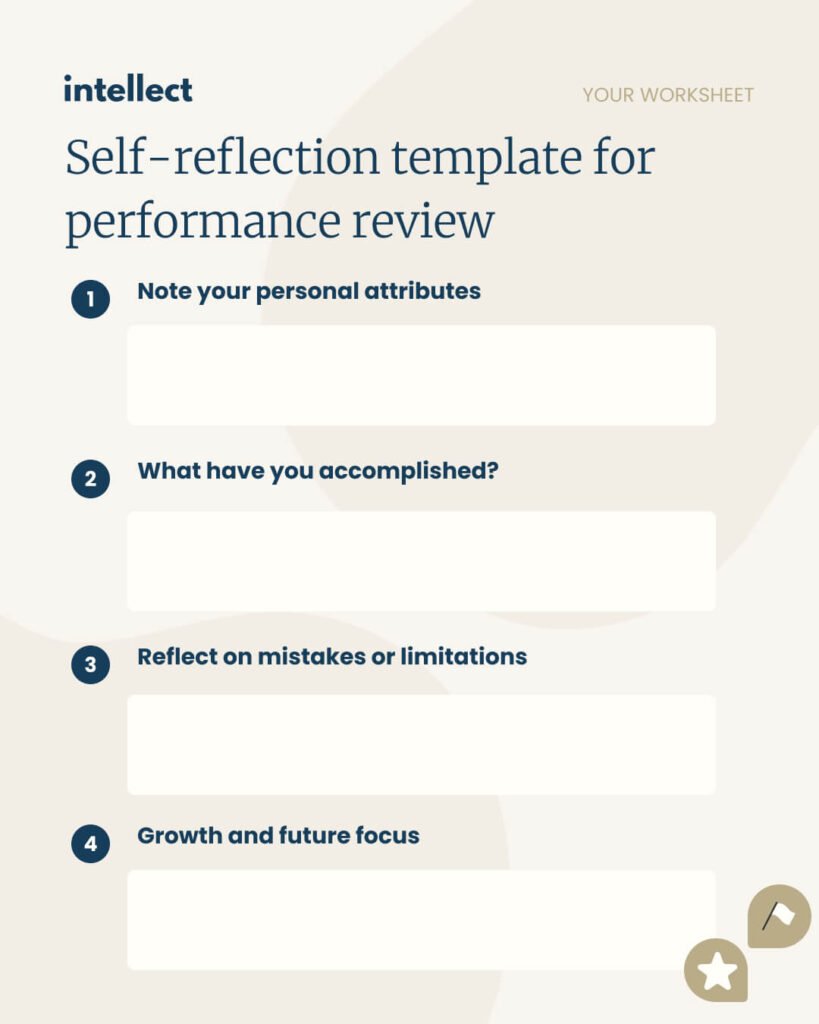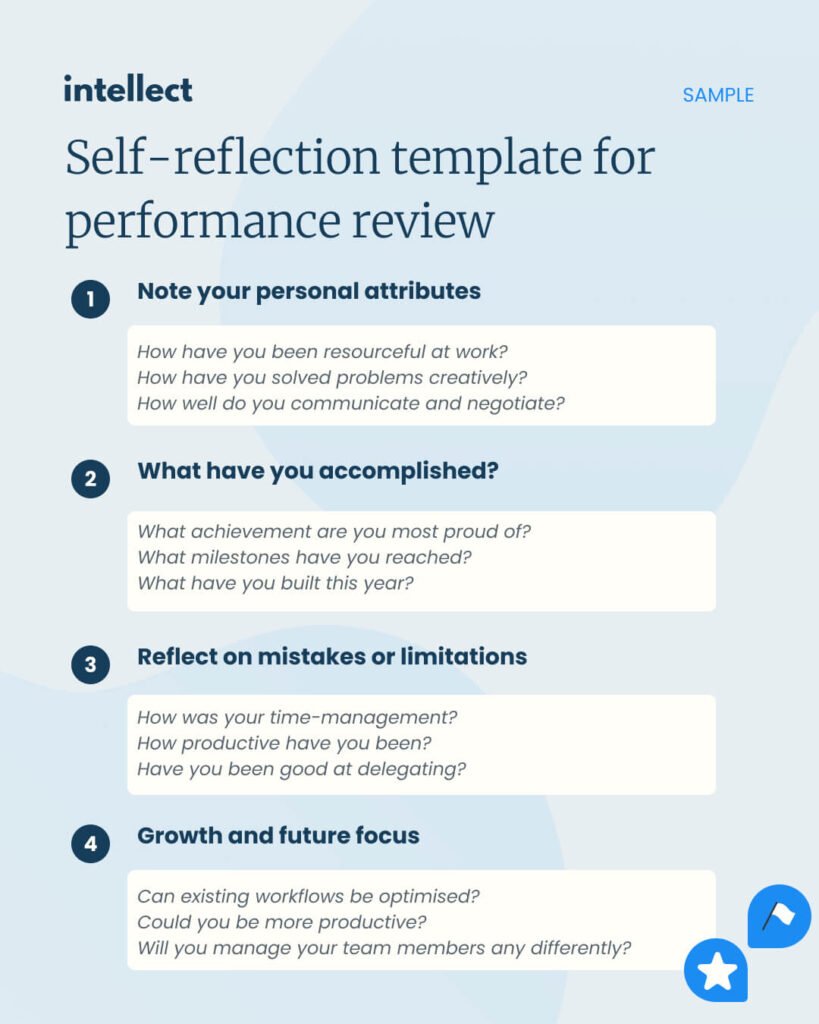Whether it’s your first, fifth or fifteenth year working, receiving feedback during performance review season can be a nerve-racking experience. For employers, feedback helps align employees with their teams and organisation. For employees, it is a means to improve their work performance and seize opportunities for career progression.
That said, listening to criticism isn’t an easy task for some, says Intellect’s Executive Coach Robyn Cam. She shares four tips on preparing for your performance review, processing feedback, and reacting appropriately.
Be prepared to receive feedback

Some introspection has to be in order before you can adopt a receptive attitude towards feedback. “It’s important to reflect on your mistakes or your limitations, and it’s important to show or suggest how you’re going to grow from that,” says Robyn, who recommends sharing the results of your self-reflection with your manager.
“I promise you it feels much more powerful in a feedback session when it comes from you, and you [show that you are] ready and you’ve thought of it, and you put it on the table, than if it were something you weren’t ready for and you weren’t expecting,” adds Robyn.
Not sure where to start? She recommends the following template and questions to facilitate self-reflection.

These are the questions to consider as you go about your self-reflection:

Download your worksheet and our sample now.
Keep your self-reflection accurate and straightforward, and cover both challenges and achievements. Before you enter the meeting room, it also helps to spend a little time destressing or separating yourself from the work on hand. If you go into an appraisal session feeling stressed, you could end up being more reactive, says Robyn. “So it’s really important that you prepare yourself for that session and that you’re in a good mental space.”
Ask clarifying questions

It is natural to have questions about the feedback that you’re receiving, but how does one clarify without seeming defensive? For starters, approach your manager’s feedback with curiosity.
“Feel free, as you’re receiving feedback, to ask more about it, because the more you understand it, the more you can decide what you’re going to do about it,” says Robyn.
For example, if your manager says you speak too quickly when presenting, you may disagree as your colleagues have always responded well. Upon clarification, you may learn that your manager is referring to sales calls with prospective clients, or realise that you do feel nervous when making pitches over the phone. Learning the reason behind your behaviour helps you take action and set new goals. “And [the feedback] no longer feels so critical and it then becomes more empowering and more strategic, helping you become more successful,” says Robyn.
Here are some clarifying questions that you can use to get more information during an appraisal:
- Can you explain what you meant by…
- Are there situations when I…
- Do you see this as an ongoing concern?
- Can you give me another example?
If your mind is racing or if you are unable to concentrate, it is also okay to pause the session. “[A performance review] is a really important process to your own growth, so you need to be alert, and you really want to be able to take everything and absorb all the information you need so you can do something about it,” says Robyn.
Here are some examples of statements that you can use to pause a session:
- I need to think about what you have shared
- I’d like some time to consider what you have said
- I need a break and would like to come back to this later
- I am not ready to respond yet
Separate the message from the messenger

Some people may feel prickly when receiving feedback. If that sounds like you, remember to take a step back. “Don’t shoot the manager just yet, don’t shoot the messenger,” says Robyn. “Let’s just explore what they’re talking about because the message is what you can learn and grow from. The message is about how you can be more successful in the workplace or in your career.”
It’s also important to remember that your manager’s feedback is often collated from your peers and other colleagues as well. Ultimately, it is up to you to flip through those messages, decipher them, and decide what to internalise for future growth.
Be honest about your reaction
Receiving feedback often raises emotions, which is normal for all of us, says Robyn. When that happens, it’s important to look it in the eye and seek support if you need it. In Robyn’s perspective, asking for feedback frequently – even outside of performance reviews – helps to mitigate negative emotional reactions. If you already know what to expect based on everyday feedback, there’s nothing to fear about appraisal season.
Growing your career from performance reviews
If appraisals still give you the jitters and you could use a little more guidance, Intellect’s behavioural health coaches can help. Our behavioural health coaches offer around the clock support for not just work, but also personal and relationship needs. Members can instantly make live video consultation appointments with their coaches and also get immediate, real-time support via text. Here’s how it works.








